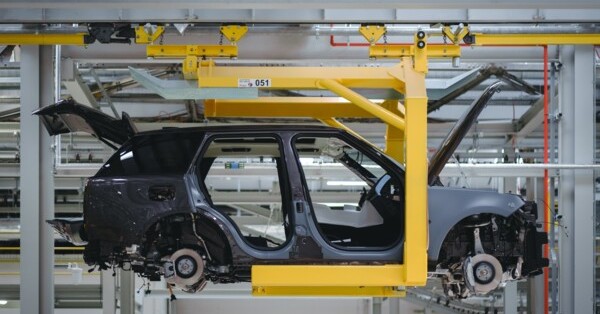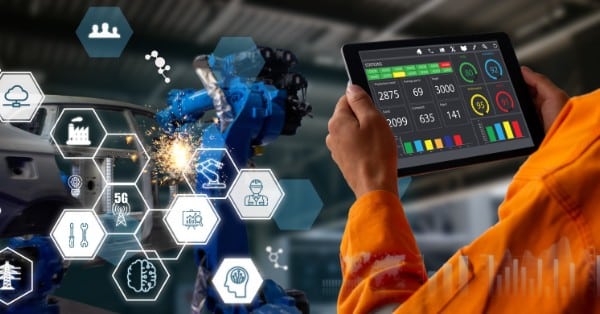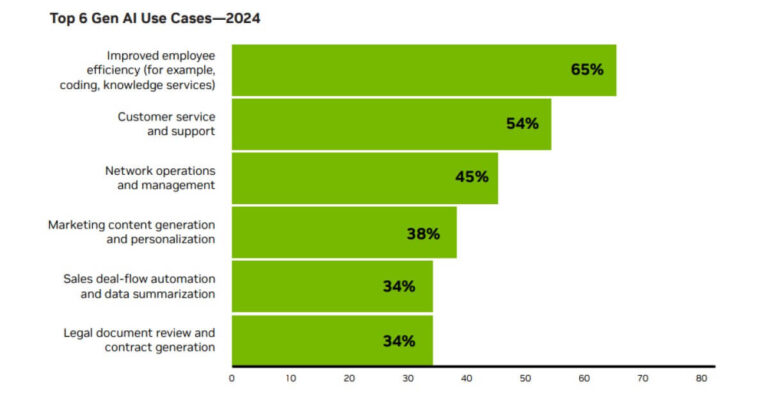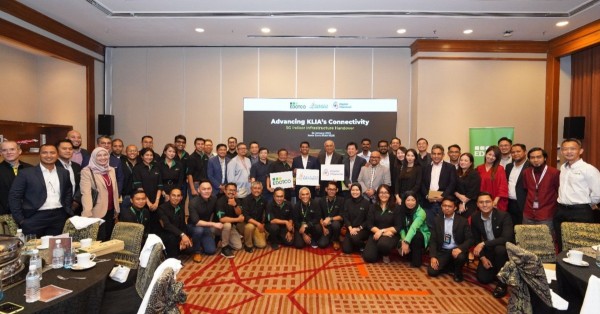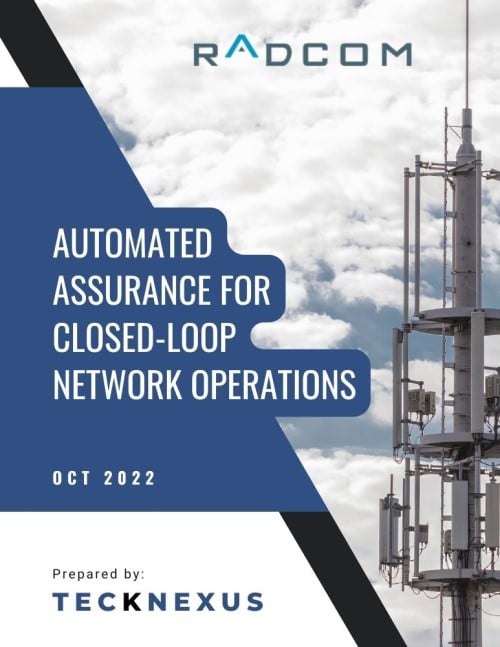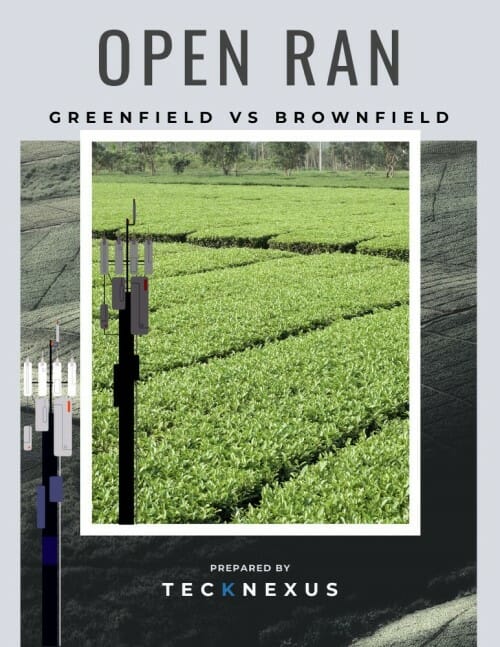JLR is embracing Industry 4.0 with the deployment of Ericsson Private 5G at its Solihull plant. The goal is clear—enhance connectivity, drive automation, and improve efficiency in the production of Range Rover vehicles. This deployment supports critical manufacturing applications such as vision systems, IoT sensors, and production tools, ensuring JLR remains at the forefront of smart automotive manufacturing.
Overcoming Legacy Network Limitations in Automotive Manufacturing
Traditional wired networks have limited JLR’s ability to adapt quickly to changes on the factory floor. Making modifications to production lines used to take weeks, slowing innovation and efficiency. The need for real-time data transmission, flexible automation, and enhanced security called for a next-generation solution. Additionally, legacy network infrastructure restricted the use of autonomous guided vehicles (AGVs), AI-powered systems, and machine learning applications.
How Private 5G is Transforming JLR’s Vehicle Production
The shift to private 5G allows JLR to “cut the copper,” eliminating time-intensive wired connections and replacing them with high-speed, low-latency wireless networks. This enhanced connectivity enables seamless machine communication, real-time monitoring, and automated decision-making on the factory floor. Key components of this solution include:
- Ultra-reliable, low-latency connectivity for AGVs, robots, and real-time analytics
- Scalability to support thousands of IoT sensors and connected production tools
- Secure network infrastructure to protect manufacturing data
- Enhanced AI and automation capabilities for process optimization
Real-World Benefits of Private 5G in Automotive Factories
JLR has already seen benefits from the deployment of private 5G:
- Reduced downtime – Quick provisioning of connected tools for fast replacements
- Enhanced decision-making – Real-time analytics via DataOps platforms like Litmus
- Optimized workflows – Automated guided vehicles (AGVs) improve material handling
- Increased flexibility – Instant reconfiguration of production lines, cutting weeks of setup time to seconds
Factory managers now leverage private 5G connectivity to analyze and act on data insights, improving operational efficiencies at every stage of production.
Why JLR Chose Private 5G Over Traditional Networks
JLR’s decision to implement 5G Private Networks was driven by:
- Speed & Reliability – Wired networks were slow to adapt; private 5G delivers sub-millisecond latency.
- Scalability – Future-proof connectivity that supports a growing number of connected devices.
- Security & Control – Private networks offer a secure, dedicated environment for mission-critical applications.
- Flexibility – No more rigid wired infrastructure—JLR can reconfigure production lines in real time.
How 5G is Revolutionizing Smart Automotive Factories
JLR’s adoption of private 5G sets a new standard for the automotive industry by:
- Improving automation and efficiency across global manufacturing sites
- Enabling rapid adaptation to new production needs without rewiring factories
- Enhancing worker safety through better monitoring and real-time alerts
- Driving sustainability by reducing waste and optimizing energy usage
Private 5G & AI: The Future of Automotive Production
This initiative signals a major shift in automotive manufacturing. With private 5G, car manufacturers can:
- Leverage AI and automation for predictive maintenance and process improvements
- Use AGVs and robots for material handling, reducing labor-intensive processes
- Ensure real-time monitoring of production quality, reducing defects and rework
- Reduce operational costs by streamlining factory workflows
Beyond automotive, industries like healthcare, manufacturing, and logistics can adopt similar 5G-powered digital transformation strategies.
JLR’s Industry 4.0 Strategy: AI, 5G & Smart Manufacturing
JLR is taking a bold step toward smart manufacturing by integrating private 5G, IoT, and AI. As Stephen Mason, Product Manager, Manufacturing, Global IT at JLR, states:
“Ericsson Private 5G provides a robust foundation for a connected, agile, and data-driven manufacturing environment. This positions us to enhance automation, digitalization, safety, and sustainability across our operations.”
This initiative aligns with JLR’s long-term goal of creating flexible, high-tech manufacturing environments that support future EV and AI-driven production.
Ericsson, 5GIR & JLR: Driving the Future of Automotive Innovation
Ericsson’s enterprise 5G division played a crucial role in deploying this solution. Manish Tiwari, Head of Enterprise 5G at Ericsson, highlights:
“Private 5G is transforming manufacturing by supporting the complex connectivity needs of Industry 4.0. We are thrilled to partner with JLR to enhance their manufacturing capabilities.”
The project is supported by West Midlands 5G Innovation Regions (5GIR) and WM5G Limited, with funding from the Department for Science, Innovation and Technology (DSIT). Their mission is to accelerate wireless technology adoption in manufacturing, driving economic growth and industrial innovation.
JLR’s 5G Manufacturing Rollout: Key Milestones & Expansion Plans
- 2024 – Ericsson Private 5G deployed at JLR’s Solihull plant
- Early 2025 – Positive feedback from factory teams on improved efficiency
- Mid-2025 – Expansion of use cases to additional JLR sites
- 2026 & Beyond – Scaling of private 5G solutions across JLR’s global facilities
How JLR’s Private 5G is Setting a New Standard for Smart Factories
JLR’s use of private 5G reinforces its leadership in automotive digital transformation. This project sets a benchmark for Industry 4.0, demonstrating how 5G-enabled factories can boost agility, automation, and operational intelligence.
The Future of Automotive Manufacturing: JLR’s 5G-Powered Transformation
JLR’s private 5G deployment marks a significant step toward next-gen manufacturing. By embracing wireless, AI-driven, and automated processes, the company is ensuring faster, smarter, and more flexible vehicle production. With the support of Ericsson and 5GIR, JLR is paving the way for a new era of automotive manufacturing, proving that the future of industrial connectivity is here.



